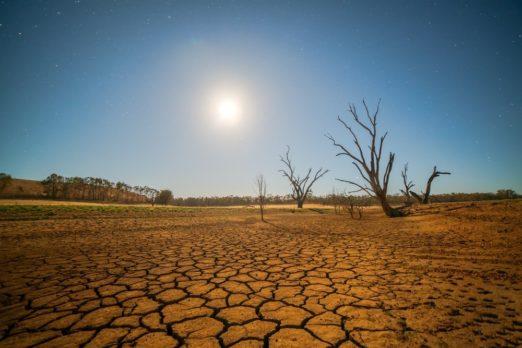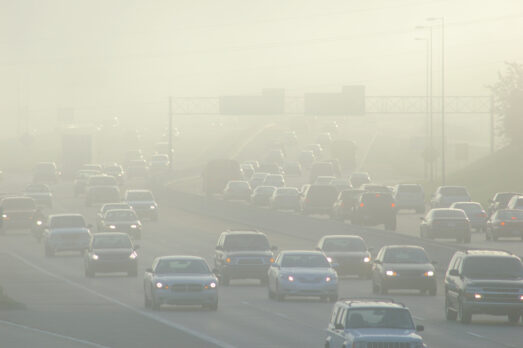
Drought doesn’t get the same attention as a powerful hurricane or the recent winter storms in Texas, but it is a creeping disaster that affects more people worldwide than any other natural disaster, and climate change is accelerating its impact.
Droughts are nothing new, they’ve been around for thousands of years. They come and go when the rains return and the threat may soon be forgotten. But scientists are predicting that we are entering a new normal with increasing heat leading to long-term megadroughts that last for decades, or a Day Zero drought when Cape Town, South Africa nearly ran out of water in 2018.
In the southwestern United States and northern Mexico, a recent study showed that climate change has transformed what would normally be a moderate drought into a megadrought —the worst drought in 500 years. In Central Europe, the last few years of record-breaking drought has been the most severe ever recorded in the region, and could become more frequent threatening the large agricultural areas across multiple countries.
Scientists are also studying flash droughts which come on rapidly and are difficult to forecast. Unlike a typical drought, which is caused by lack of rain, flash drought happens when low rain is accompanied by heatwaves and high winds. This can rapidly remove available water from the landscape with serious impacts. In 2017, a flash drought in the Northern U.S. Plains and Canada resulted in fires that burned 4.8 million acres and more than $2.6 billion in U.S. agricultural losses.
In South Africa, a recent Stanford study says that the 2018 Day Zero drought was made 5-6 times more likely because of climate change. While the rains have returned and the threat seems less imminent, the study says if greenhouse gas emissions continue at the same rate, there is an 80% higher chance another Day Zero drought will hit the area. “I’m sure that many Cape Town residents have forgotten what happened now that lakes and water reservoirs are back to normal,” said lead author Salvatore Pascale. “But this is the moment to rethink the old way of managing water for a future when there will be less water available.” The study says Day Zero droughts could come to other regions of the world with climates similar to South Africa such as California, southern Australia, southern Europe and parts of South America.
Drought has multiple impacts because a lack of water affects nearly every aspect of life. The 2020 UN World Water Development Report described how climate change is affecting the availability, quality and amount of water available for billions of people around the world, posing risks for energy production, food security, human health, economic development and the reduction of poverty. Farmers can lose their harvests, livestock and sometimes have to give up their land. In the developing world, it leads to starvation, mass migrations, and civil unrest. Wildfires have grown in scale and power as extreme heat and dry conditions turn forests into tinderboxes.
Water also has an important, if complicated, relationship with energy production. We need energy systems for our water and we also need water for our energy systems. Not surprisingly, drought can impact energy production as water is needed in plants that require cooling. According to Dr. Michael Webber, Professor in Energy Resources at the University of Texas at Austin and author of Thirst for Power: Energy, Water, and Human Survival, “most of us don’t realize that we use more water for our light switches and electrical outlets than our faucets and showerheads because the water is used for cooling power plants far away.”
While it may not currently be top of mind, we all need to create more awareness about water scarcity and take steps to proactively manage our resources. This year’s World Water Day on March 22 will focus on “Valuing Water” with stories about the environmental, social and cultural value people place on water.
If you want to learn more about drought’s global impacts, there are several articles in this Special Issue on Drought in the journal Science.

Annual global bottled water consumption is estimated to have reached 118 billion gallons in 2023. That’s equivalent to 1 million…

The world is driving towards a new era of electric transportation. This is good news for fighting the climate crisis,…

The past few summers have been breaking heat records but winters are actually warming faster than summers in most of…